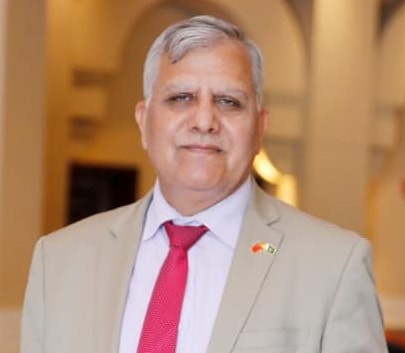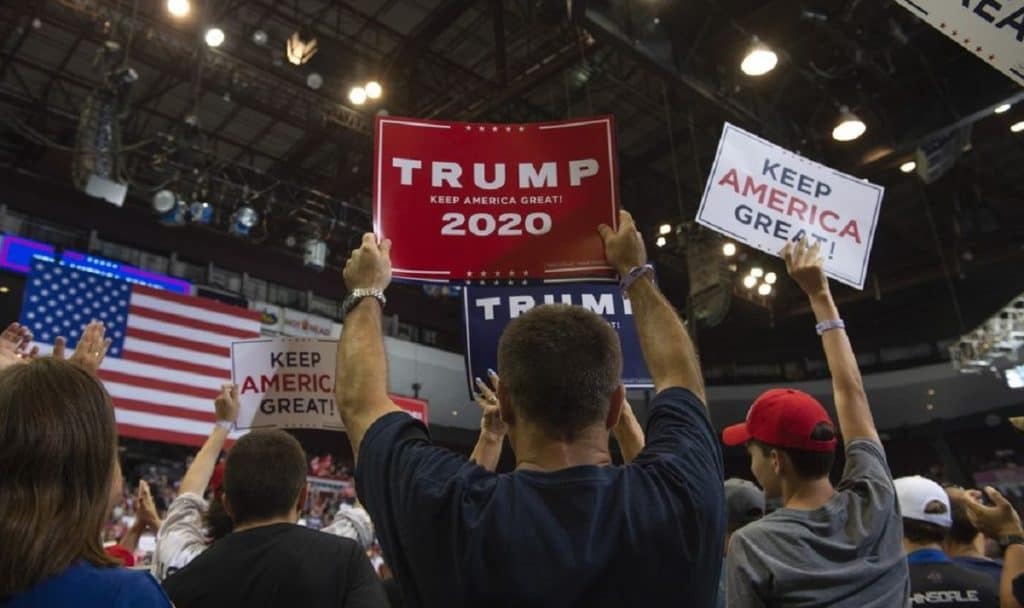By Prof. Engr. Zamir Ahmed Awan (ex-Diplomat, Editor, Analyst)
There is no any significant difference between the Elections in the Developing World or Under-Developed World’s Election, as compared to the Presidential Elections in the U.S.

Americans will elect the next president on November 3, 2020. A tough competition is expected between the Democrats and Republicans: Joe Biden (D) / Kamala Harris (D) and Donald Trump (R) / Mike Pence (R). However, there are two more candidates, too: Howie Hawkins (G) / Angela Nicole Walker (G) and Jo Jorgensen (L) / Spike Cohen (L).
President Trump has a long history of involvement in politics and kept on changing his political affiliations; between 1987 and 2012, he changed his official party affiliation five times and finally registered with the Republican party in April 2012. He ran as a Reform Party presidential candidate in 1999 but withdrew from the race in February 2000. He declared his submission for the 2016 presidential election on June 16, 2015, and formally received the nomination of the Republican Party on July 19, 2016, at the Republican National Convention, and was elected as the 45th president of the United States.
Joe Biden, a senior and seasoned politician with vast experience, started his political career since the 1970s. He worked on the New Castle County Council in 1970-1972. He was elected to represent Delaware in the U.S. Senate at the age of 29 only and served in the Senate from 1973 to 2009. During his Senate career, he chaired the Senate Judiciary Committee and the Committee on Foreign Relations for several years. He launched his first presidential bid in 1987 but withdrew from the race. He initiated a second presidential campaign in 2007, dropping out of the race following the 2008 Iowa caucuses, where he placed fifth. Then-candidate Barack Obama announced Biden as his choice for running mate in August 2008, and the pair won the general election. Joe Biden has served as vice president from 2009 to 2017.
The Election campaign is at its peak. Both candidates are out for rallies and addressing the voters, making promises, and convincing the voters. It is their right to persuade the voters with their policies and making some promises, which is the usual practice in the elections.
However, these elections have seen some unusual phenomenon as:
President Trump officially filed his reelection campaign with the Federal Election Commission (FEC) on January 20, 2017, the day of his inauguration, which is somewhat unusual, as his predecessors like president Barack Obama, George W. Bush, Bill Clinton, George H. W. Bush, and Ronald Reagan all announced their candidatures for reelection in the third year of their presidencies. It shows his clear over-ambiousness.
President Trump was in a “permanent campaign” during his first tenure in the office and kept on engaged for the reelections campaign. The excessively large amounts of time presidents have spent visiting critical electoral states, and a relatively insignificant amount of they have spent visiting states that pose slight electoral importance to them has been pointed to as proof of ulterior electoral motives influencing presidential governance, emblematic of the blurred lines between campaigning and government in the White House.
Political-intellectuals argue the opinion that a permanent campaign has had an vital influence that policies by the president have increasingly been made with considerations to their implications for voter approval.
Fundraising was visible in his decisions, actions, and policies. The availability of party-funds plays a decisive role in American Elections. It might give President Trump an edge over his competitors, which may not be fair.
Targeting competitors, especially personal attacks, were seen. The use of language is somewhat below the mark and impolite. Blaming opponents and self praising is highly unusual. The degree of alleging and criticizing other candidates is also never witnessed in the previous elections.
Linking the American Elections with International politics, especially with Russia or China, is so much used as it has become as abused.
Based on closely observing the rallies and elections campaigns in the U.S., one can see no significant difference between the most developed nation and the developing countries or under-developed countries; the election practices are precisely the same, and maybe the U.S. has crossed in some respect. All ills and evils in the third world elections are visible in the American elections too.
It is feared that President Trump is asking for double voting, and expressing his concerns of pre-poll-rigging, or denying to accept the out-comes if he losses, may erupt new avenues of violence. The already unrest and civil war may flare up after the election.
It seems, President Trump is determined to win the election and wanted to serve the nation once again for the next tenure, which may lead to new complications. Although all the survey shows Joe Biden ahead of him and his four-years performance-based, his popularity has suffered a lot, yet he wanted to re-elect at any cost.
There is an intense fear that he might make some drastic decisions if he is scared of losing the election. These couple of months are very critical, and expect any surprise from him. He can go to any extent for his reelection.
The U.S. is a superpower and a world-leader, having a global impact, anything wrong in the U.S. may cost the whole world. We pray for peace, stability, and smooth elections in the U.S.
Image Credit: Matthew Hatcher/Bloomberg
Author: Prof. Engr. Zamir Ahmed Awan, Sinologist (ex-Diplomat), Editor, Analyst, Non-Resident Fellow of CCG (Center for China and Globalization), National University of Sciences and Technology (NUST), Islamabad, Pakistan.
(The views expressed in this article belong only to the author and do not necessarily reflect the views of World Geostrategic Insights).







